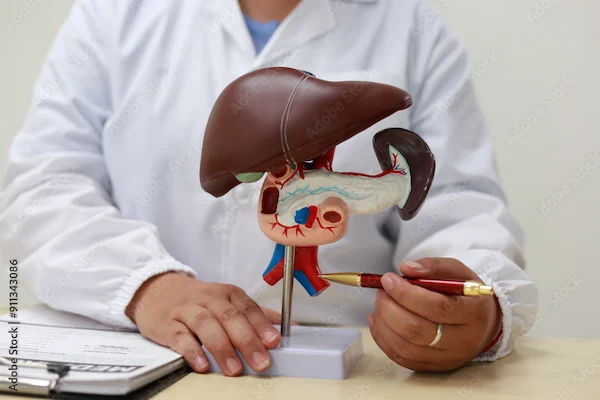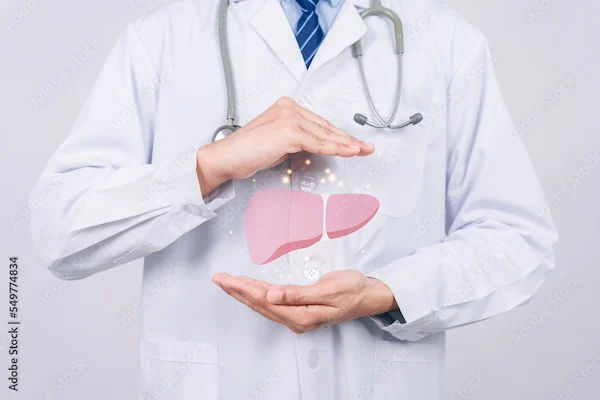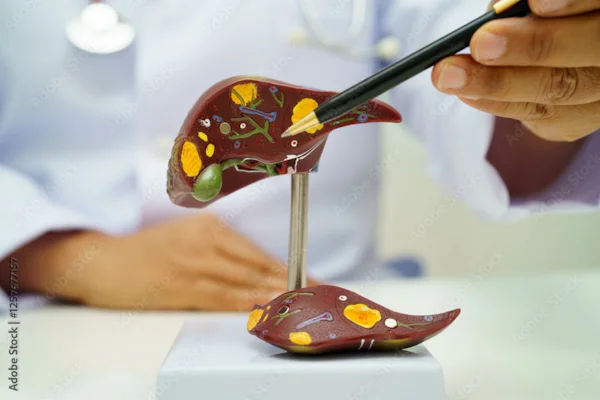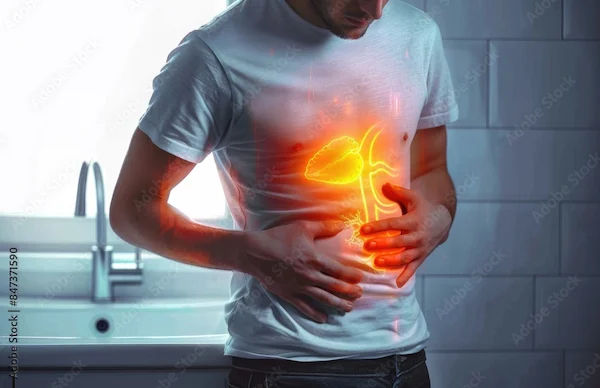Diagnosis of Hepatitis: Key Tests and Procedures
Learn how hepatitis is diagnosed, from blood tests and imaging scans to specialised procedures like liver biopsy and viral load testing. Understand the importance of early diagnosis for effective treatment and monitoring of liver health.

Written by Dr.Sonia Bhatt
Last updated on 3rd Jul, 2025

Hepatitis is a condition that causes inflammation of the liver, typically as a response to irritation or injury. This inflammation can lead to swelling and may result in pain or discomfort. There are various causes of hepatitis, with viral infections being a common factor. Viral hepatitis can be acute (lasting less than six months) or chronic (persisting beyond six months).
Testing is a crucial step in accessing care, allowing for early intervention and effective management of hepatitis. A definitive diagnosis requires medical testing to identify the specific virus responsible and determine the most appropriate treatment.
Common Symptoms of Hepatitis
Many people with hepatitis may not show any symptoms. However, when symptoms do develop, they tend to be similar across the most common types of hepatitis. These can include:
Dark-coloured urine
Abdominal pain
Yellowing of the skin or eyes (jaundice)
Pale or light-coloured stools
Mild fever
Loss of appetite
Tiredness
Nausea
In cases of hepatitis A or B, joint pain may also occur. As symptoms can be mild or absent, thus medical tests are essential for accurate diagnosis and appropriate treatment.
Initial Assessment and Blood Tests for Hepatitis
A physical examination can help identify signs of viral hepatitis. A doctor may check for liver swelling or tenderness by gently pressing on the abdomen and looking for jaundice, which gives the skin and eyes a yellowish appearance. During the assessment, the doctor may ask about your medical history and any symptoms you have experienced, such as fatigue, muscle weakness, or loss of appetite.
If hepatitis is suspected, a blood test can detect antibodies that indicate an infection. In cases of hepatitis B or C, follow-up blood tests may be required to monitor any complications. As symptoms are often mild or absent, viral hepatitis is sometimes referred to as a "silent disease."
Blood tests can confirm the type of hepatitis, assess the severity of the infection, determine if the virus is active or dormant, and identify whether the infection is contagious. They can also establish whether the condition is temporary (acute) or long-term (chronic).
Imaging Tests for Hepatitis
If blood test results confirm a diagnosis of hepatitis, your doctor may recommend imaging tests to evaluate the extent of liver damage and screen for liver cancer.
1. Ultrasound
An ultrasound may be suggested to check for inflammation, damage, or the presence of masses in the liver. It can also help detect areas of scarring, which could indicate cirrhosis. High-frequency sound waves are used in ultrasound to generate images of internal organs. A small handheld device, called a transducer, is placed on your abdomen. The transducer emits sound waves that generate an image of the liver on a computer monitor, which can then be reviewed by the doctor. This test is non-invasive, painless, and usually performed in a doctor's office.
2. MRI and CT Scans
If blood tests or ultrasound findings indicate a risk of liver cancer, or if you have a family history of liver cancer, your doctor may recommend either an MRI or CT scan for a more detailed examination. These imaging techniques use computer technology to produce two- or three-dimensional images of the liver, providing a clearer picture of its condition.
Liver Biopsy
In some instances, imaging tests may not provide sufficient detail to evaluate the full extent of liver damage, and a liver biopsy is then recommended. This procedure helps assess the level of scarring, or fibrosis, in the liver due to viral hepatitis. The biopsy results can be used further to guide treatment decisions.
The procedure involves the doctor administering a local anaesthetic to numb the skin before inserting a needle through the skin and into the liver to collect a small tissue sample. Imaging techniques, such as ultrasound or CT scans, may be used to ensure accurate needle placement. The tissue sample is sent to a laboratory for analysis, with results typically available within a week.
Genotyping and Viral Load Testing
Genotyping and viral load tests are essential for understanding the type and severity of hepatitis infection. Genotyping identifies the specific strain of the virus, while viral load testing measures the amount of virus in the blood, helping to guide treatment decisions and monitor the infection's progression.
For patients with suspected acute viral hepatitis, the following tests are typically carried out:
IgM antibody to HAV (IgM anti-HAV)
Hepatitis B surface antigen (HBsAg)
IgM antibody to hepatitis B core (IgM anti-HBc)
Antibody to HCV (anti-HCV)
Hepatitis C RNA (HCV-RNA PCR)
If any of these tests return positive results, further testing may be needed to distinguish between acute and chronic infection. For severe hepatitis B infections, testing for anti-HDV is also recommended. In patients who have recently travelled to an endemic region or are immunosuppressed, testing for IgM anti-HEV may also be conducted.
A viral serology panel is used to identify the hepatitis virus type, its strain, and the severity of the infection. Blood samples are analysed for viral markers and antibodies produced by the immune system. These tests are vital for determining the best course of treatment and monitoring long-term progress.
Hepatitis C RNA Testing: This test detects the presence of the hepatitis C virus in the blood and helps evaluate the effectiveness of treatment.
Hepatitis D Testing: Hepatitis D is diagnosed by detecting anti-HDV antibodies and HDV antigens, typically in individuals with hepatitis B.
Hepatitis E Testing: Acute hepatitis E infection is diagnosed by detecting anti-HEV IgM antibodies, which typically appear around four weeks after infection. PCR testing confirms whether the virus is still active in the body, with a positive result indicating an ongoing infection.
Differential Diagnosis
To confirm a hepatitis diagnosis, laboratory tests are essential. If not already performed, liver function tests should include:
Serum alanine aminotransferase (ALT)
Aspartate aminotransferase (AST)
Alkaline phosphatase
Further tests should also be conducted to assess liver function, including:
Serum albumin
Bilirubin levels
Prothrombin time/international normalised ratio (PT/INR)
These tests are crucial in evaluating liver health and helping to inform treatment decisions.
Specialised Tests
Transient elastography is a specialised imaging technique used to assess the stiffness of liver tissue. Increased stiffness typically indicates the presence of fibrosis (scarring) caused by liver injury, and the level of stiffness helps determine the extent of liver damage from viral hepatitis.
The test is similar to an ultrasound. Using a device called FibroScan, the doctor places a handheld probe on the abdomen. The probe emits painless vibrations that travel through the body into the liver. A sensor measures how long it takes for the vibrations to pass through the liver. The faster the vibration travels, the stiffer the liver is, suggesting greater fibrosis. This quick, non-invasive test can be performed in a doctor's office and often replaces the need for a liver biopsy.
Conclusion
Regular check-ups are crucial for tracking the progression of hepatitis, evaluating liver function, and modifying treatment as required. Since hepatitis can be symptom-free, ongoing monitoring helps identify any complications early, leading to better outcomes.
Partnering with specialists, like hepatologists, ensures a personalised approach to treatment and expert support in managing the condition and preventing further complications. This team-based care contributes to improved overall health and quality of life.
Consult Top Hepatologists
Consult Top Hepatologists

Dr. Srinivasa Reddy
Hepatologist
12 Years • MBBS, MD (General Medicine), DM (Hepatology),ASGE
Hyderabad
Myra Liver & Gastro Care, Hyderabad

Dr. E Prabhakar Sastry
General Physician/ Internal Medicine Specialist
40 Years • MD(Internal Medicine)
Manikonda Jagir
Apollo Clinic, Manikonda, Manikonda Jagir
(125+ Patients)

Dr. Sushith C
General Physician
2 Years • MBBS
Bengaluru
PRESTIGE SHANTHINIKETAN - SOCIETY CLINIC, Bengaluru

Dr. Pukhraj Singh Jeji
Gastroenterology/gi Medicine Specialist
13 Years • MBBS, MD ( Internal Medicine ), DM ( Gastroenterology ), Consultant - Gastroenterology
Bhubaneswar
Apollo Hospitals Old Sainik School Road, Bhubaneswar

Dr. Aswin S. Krishna
Hepatologist
10 Years • MBBS, MD (Internal Medicine,MMC), DM (Hepatology, MMC), PDF(Fellowship in Liver Transplanatation)
Chennai
Apollo Hospitals Greams Road, Chennai
(100+ Patients)


.webp)

